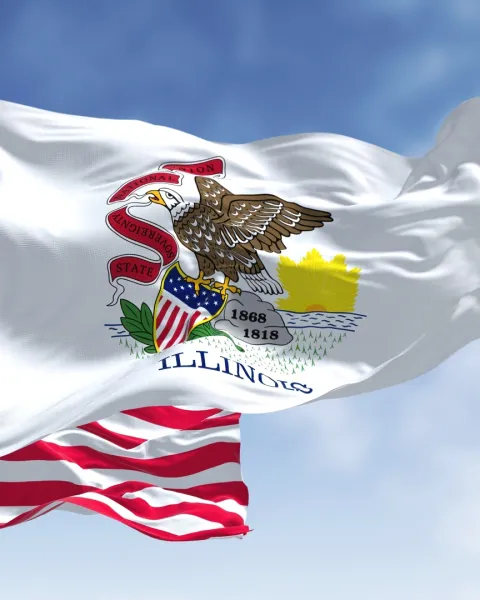Illinois has enacted broad protections for freelance workers. The Freelance Worker Protection Act (FWPA) requires entities contracting with freelance workers to provide written contracts and timely compensation and authorizes administrative and civil actions for violations. The FWPA takes effect on July 1, 2024.
The FWPA defines “freelance worker” as “a natural person” who is hired or retained as an independent contractor by any non-governmental person or entity to provide products or services in Illinois, or for an entity located in Illinois, where the amount paid is at least $500 (in a single contract or in the aggregate of all contracts within a 120-day period). The definition expressly excludes individuals engaged by construction contractors or subcontractors, as defined by the Illinois Employee Classification Act, and “employees,” as defined by the Illinois Wage Payment and Collection Act.
Written Contracts
The FWPA requires the “freelance worker” and the “contracting entity” to enter a written contract that includes, at a minimum, the following:
- The name and contact information of both parties (including the hiring party’s mailing address);
- An itemized list of all products and services provided by the freelance worker, including the value of the products and services and the rate and method of compensation for such products and services;
- The date on which payment is due (which must be no later than 30 days after the products or services are provided); and
- If the hiring party requires a list of products and services rendered to timely compensate the freelance worker, the date by which the freelance worker must submit the list.
The Illinois Department of Labor (IDOL) is required to make available model contracts for use by the general public at no cost.
The hiring party must provide a copy of the written contract to the freelance worker and retain the contract for at least two years. It also must produce the contract to the IDOL upon request.
Prohibitions
Once the freelance worker begins performing the contracted services, the FWPA expressly prohibits a hiring party from conditioning timely payment on the freelance worker’s acceptance of less compensation than contracted.
The FWPA further prohibits a hiring party from taking any action to penalize a freelance worker for exercising rights under the FWPA or any action that is likely to deter the worker from exercising such rights. Such action includes any threats, intimidation, discipline, harassment, discrimination, or retaliation.
Enforcement
The IDOL is required to enforce the new law. Under the FWPA, a freelance worker may file an administrative complaint with the IDOL or a civil action within two years of the date the final compensation was due.
Freelance workers may sue hiring parties on behalf of themselves and others similarly situated without first exhausting administrative remedies.
Upon receipt of a complaint, the IDOL must investigate. A hiring party’s failure to timely respond to the IDOL will create a rebuttable presumption of liability in any subsequently filed civil action.
The penalties and damages available depend on the type of violation. For a claim based on a failure to timely pay, the freelance worker is entitled to double the amount of the underpayment, along with the recovery of attorney’s fees and costs. Violation of the statutory requirement to enter into and provide the freelance worker a written contract will result in a statutory damage award of the greater of $500 or the value of the underlying contract. Finally, violations of the discrimination prohibitions will result in recovery of the amount of the underlying contract for each violation, along with costs and attorney’s fees.
Finally, the Illinois attorney general may initiate or intervene in a civil action and may request the court to impose a civil penalty not exceeding $5,000 for each violation, or $10,000 for each repeat violation within a five-year period, as well as obtain monetary damages to the state, restitution, and equitable relief, including any permanent or preliminary injunction and temporary restraining order.
Jackson Lewis attorneys are available to answer questions about this new legislation.
© Jackson Lewis P.C. This material is provided for informational purposes only. It is not intended to constitute legal advice nor does it create a client-lawyer relationship between Jackson Lewis and any recipient. Recipients should consult with counsel before taking any actions based on the information contained within this material. This material may be considered attorney advertising in some jurisdictions. Prior results do not guarantee a similar outcome.
Focused on employment and labor law since 1958, Jackson Lewis P.C.’s 1,100+ attorneys located in major cities nationwide consistently identify and respond to new ways workplace law intersects business. We help employers develop proactive strategies, strong policies and business-oriented solutions to cultivate high-functioning workforces that are engaged and stable, and share our clients’ goals to emphasize belonging and respect for the contributions of every employee. For more information, visit https://www.jacksonlewis.com.



